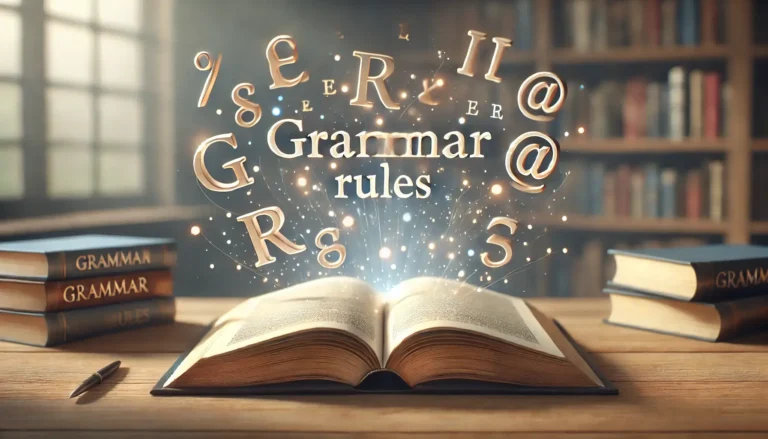Intensifiers play a crucial role in language by helping us express emotions, highlight significance, and add depth to our descriptions. These small but impactful words are particularly useful when you want to emphasize or tone down certain qualities.
By modifying adjectives, adverbs, and sometimes even nouns, intensifiers allow you to communicate with greater precision and emotion. Let’s explore the concept of intensifiers in detail, from their definition and examples to their use in different contexts.
What Are Intensifiers?
Intensifiers are words or phrases that strengthen or sometimes weaken the meaning of the words they modify. Think of them as tools to adjust the intensity of your statements, making your language more expressive and impactful. They can make a simple statement more powerful, such as turning The book is good into The book is absolutely amazing.
For example:
- The weather was cold.
- The weather was incredibly cold.
In the second sentence, the word incredibly acts as an intensifier, amplifying the adjective cold. Intensifiers don’t usually change the fundamental meaning of the sentence but make it more vivid or nuanced.
Common Intensifiers in English
Intensifiers range from simple, everyday words to more dramatic or nuanced terms. Here are some of the most commonly used ones:
Basic Intensifiers
- Very: She was very happy about the results.
- Really: This movie is really entertaining.
- Extremely: He’s extremely talented at painting.
Stronger Intensifiers
These add a higher level of emphasis, often used with strong adjectives or when describing extreme situations:
- Absolutely: The performance was absolutely breathtaking.
- Totally: He was totally convinced by the argument.
- Completely: The room was completely silent.
Dramatic Intensifiers
Dramatic intensifiers can bring an emotional or exaggerated tone to your statements:
- Incredibly: Her cooking is incredibly delicious.
- Amazingly: The sunset was amazingly beautiful.
- Extraordinarily: He is extraordinarily skilled at his craft.
How and Where to Use Intensifiers
Intensifiers with Adjectives
Intensifiers are most commonly paired with adjectives to emphasize their qualities. They typically appear before the adjective:
- The view was particularly stunning at sunset.
- Her efforts were exceptionally thoughtful.
Intensifiers with Strong Adjectives
Some adjectives, known as strong adjectives, already imply an extreme degree, such as delicious (very tasty) or huge (very big). For these, basic intensifiers like very are unnecessary and may even sound unnatural. Instead, pair them with stronger intensifiers like absolutely or utterly:
- Wrong: The meal was very delicious.
- Correct: The meal was absolutely delicious.
Here are examples of strong adjectives and appropriate intensifiers:
- Enormous (very big): The building was utterly enormous.
- Tiny (very small): The handwriting was incredibly tiny.
- Terrible (very bad): The experience was completely terrible.
Intensifiers with Comparatives and Superlatives
When comparing, intensifiers can enhance the degree of difference between two things or highlight the extremity of a superlative:
- Comparatives:
- Her voice is much louder than his.
- This puzzle is far more complex than the last one.
- Superlatives:
- By far the most talented artist in the room.
- The task was easily the hardest we’ve faced.
Specialized Intensifiers for Specific Adjectives
Certain intensifiers naturally pair with specific adjectives to convey precise meanings. These combinations feel natural and are commonly used:
- Highly: successful, likely, intelligent
- She is a highly successful entrepreneur.
- Bitterly: disappointed, cold, unhappy
- We were bitterly disappointed by the outcome.
- Dangerously: hot, ill
- The experiment was dangerously close to failure.
Using these pairings adds polish and clarity to your language.
Adjectives as Intensifiers
In some cases, adjectives themselves can function as intensifiers to modify nouns. These intensifiers usually emphasize the absolute nature of the noun:
- Absolute: She’s an absolute genius.
- Complete: It was a complete disaster.
- Total: The team suffered a total defeat.
However, be cautious with placement. For instance, saying The genius was absolute would sound odd.
Using Intensifiers in Formal vs. Informal Writing
While intensifiers are excellent for enhancing everyday conversations and casual writing, they should be used sparingly in formal contexts. Overuse or reliance on intensifiers can make your writing seem lazy or overly emotional. Instead, opt for precise and strong vocabulary:
- Informal: The results were very surprising.
- Formal: The results were unexpected.
Similarly, doubling up intensifiers (e.g., very very difficult) is acceptable in informal settings but unprofessional in formal writing.
Challenges with Intensifiers
Overuse
Using too many intensifiers in a single sentence can overwhelm the reader or listener and reduce the overall impact of your message:
- The speech was very powerful, very inspiring, and very well-delivered.
Better: - The speech was exceptionally powerful and inspiring.
Non-Gradable Adjectives
Some adjectives, such as unique, impossible, and dead, are considered non-gradable because they represent absolute states. These adjectives typically cannot be intensified:
- Wrong: The idea is very unique.
- Correct: The idea is quite unique (when using unique to mean unusual).
Why Should You Use Intensifiers?
Intensifiers enrich communication by allowing you to express your thoughts with precision and emotional depth. They help:
- Emphasize a point (This project is incredibly important to our success.)
- Convey emotions (I’m utterly thrilled to be here.)
- Highlight contrasts (The second performance was far better than the first.)
Used skillfully, intensifiers can enhance your fluency and make your speech or writing more engaging. However, moderation is key—strategically placed intensifiers will always have more impact than overloading your sentences with them.
Final Thoughts
Intensifiers are a powerful tool in both written and spoken English. They allow you to add personality, emotion, and clarity to your communication. By understanding their proper usage and learning to pair them effectively with adjectives and other modifiers, you can elevate your language skills and express yourself more vividly. So, the next time you describe something as good, consider whether it’s actually exceptionally good!







